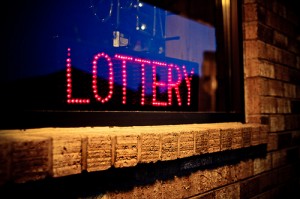John List Explains Why Lotteries Are in Fact a Good Fund-Raising Mechanism
We recently ran on a post on a reader’s query about the economics of a 50-50 fund-raiser. John List, the University of Chicago economics-of-charity wizard (related podcast here), wrote in with a comment:
The intuition of the reader is slightly off. Although not directly a 50-50 charity drive, we have explored the efficacy of lotteries both theoretically and empirically. As John Morgan (from Berkeley) has elegantly shown, under standard assumptions (no risk-loving or lottery-loving behavior is necessary), lotteries outperform the simple ask (what we call a VCM). Lotteries obtain higher levels of public-goods provision than a voluntary contributions mechanism (VCM) because the lottery rules introduce additional private benefits from contributing.
Here is the intuition: in the standard VCM, there is a free-riding tendency (people do not contribute as much as we would like because they do not fully recognize how their gifts affect others — i.e., they do not fully recognize the positive externality they impose on others). In this case, people give too little to the charity compared to what is best for everyone.
When you introduce a lottery — for example, for every dollar you give you receive one ticket for a $1,000 prize — this free-riding effect is counteracted. This is because when you increase your level of giving by a dollar your chances of winning the lottery increase. But, at the same time everyone else’s chances decrease. In this way, by giving one more dollar you impose a negative externality on others through the lottery. This effect you do not account for when giving.
So, in the end this negative externality can help to offset the positive externality, leading the level of giving to increase when you introduce a lottery. Of course a love of gambling, etc., can increase this effect.
List’s theory and field experimental paper can be found here; a more accessible discussion of that paper and broader findings (along with some recent charity statistics) is here.
Furthermore, List writes to say:
Note that lotteries are patriotic too! The first lottery in America was held in 1612 in Jamestown with the proceeds providing half of the town’s budgeted operating expenses. George Washington used a lottery to assist in the funding of the Continental Army and purchased the first ticket for a federal lottery— sponsored to finance improvements in Washington, D.C. — in 1793.


Comments